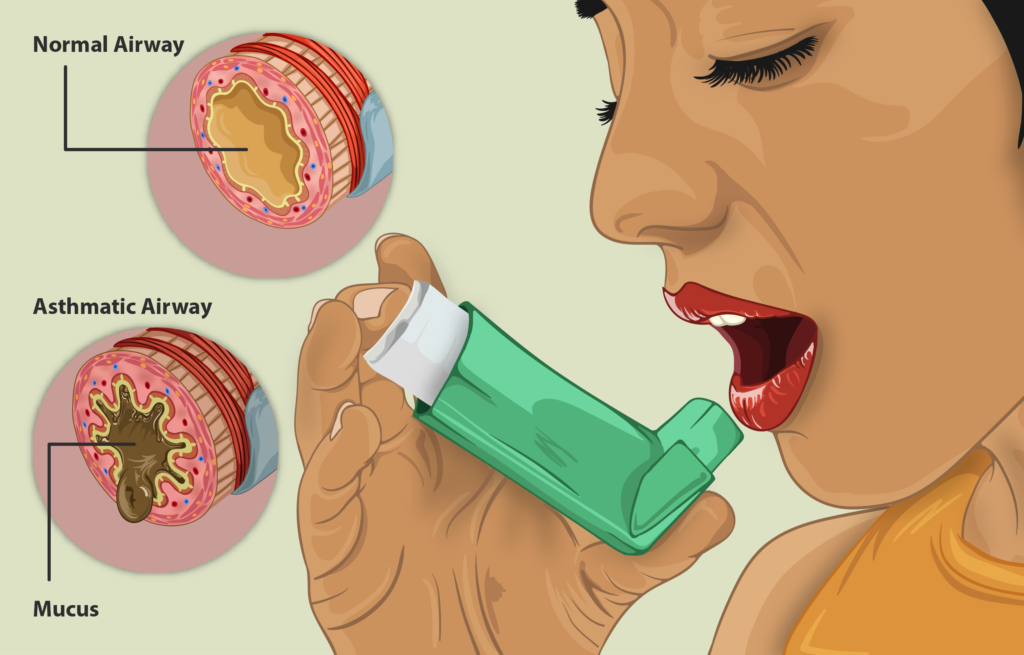Asthma is a chronic respiratory condition that causes a wide range of symptoms, including wheezing and shortness of breath. If not well-managed, the condition can significantly impact daily life and comfort. Here are some common questions about this condition, its triggers, and effective treatment options:
What Are the Symptoms of Asthma?
Symptoms of asthma include inflammation and narrowing of the airway passages in the lungs. This makes it harder to breathe. People with this condition may also experience chest tightness and persistent coughing. These symptoms range from mild to severe and may flare up periodically, depending on various factors. While asthma typically begins in childhood, it can develop at any age. Early recognition of these symptoms is key to managing the condition effectively.
What Triggers Asthma Attacks?
Asthma attacks, or flare-ups, occur when the airways become inflamed and overly responsive to specific triggers. Common causes include allergens such as pollen, dust mites, mold, and pet dander. Environmental factors like tobacco smoke, pollution, and strong odors are other possible irritants. Respiratory infections, including colds or flu, and intense physical activity may also provoke symptoms. Identifying your triggers and taking preventive measures can reduce the frequency of attacks.
How Is This Condition Diagnosed?
A medical diagnosis involves assessing your medical history and reviewing your symptoms, their frequency, and any identifiable patterns. Doctors can conduct a physical examination to check for wheezing or other respiratory issues. Pulmonary function tests, like spirometry, measure how well your lungs work by evaluating airflow. Allergy tests might also be recommended to pinpoint specific allergens. If symptoms occur primarily during exercise or at night, additional tests such as exhaled nitric oxide testing may be carried out.
What Are the Treatment Options for Asthma?
Asthma management combines medication with lifestyle adjustments to improve quality of life. There are two primary medication types:
- Controller Medications: These are taken daily to reduce airway inflammation and prevent symptoms. They include inhaled corticosteroids.
- Rescue Medications: These quick-relief inhalers help open airways rapidly during an asthma attack.
Beyond medication, your doctor may recommend using a peak flow meter to monitor lung function. For individuals with severe asthma, treatments such as biologics or bronchial thermoplasty can be prescribed. Adjusting your environment or using air purifiers to minimize triggers also enhances symptom control.
Can Asthma Be Cured?
There is no definitive cure for asthma, but many individuals can use proper management techniques to lead a full and active life with minimal disruptions. Asthma is a lifelong condition, so the goal is to control symptoms and reduce the risk of severe attacks. Medical advancements continue to improve treatment options, helping patients achieve better symptom management. Ongoing consultations with healthcare professionals can tailor your treatment plan as your condition evolves.
Call a Specialist Today
Asthma is a manageable condition; a specialized doctor can help personalize a treatment plan for your unique situation. They assist with identifying symptoms, triggers, and effective treatment options or medications. If you have questions or need personalized guidance, contact your healthcare provider or explore resources tailored for asthma management.

